Parween and Fahima’s lives changed when they left Afghanistan. Now they fight for gender equality. The men in their lives fight for them too.
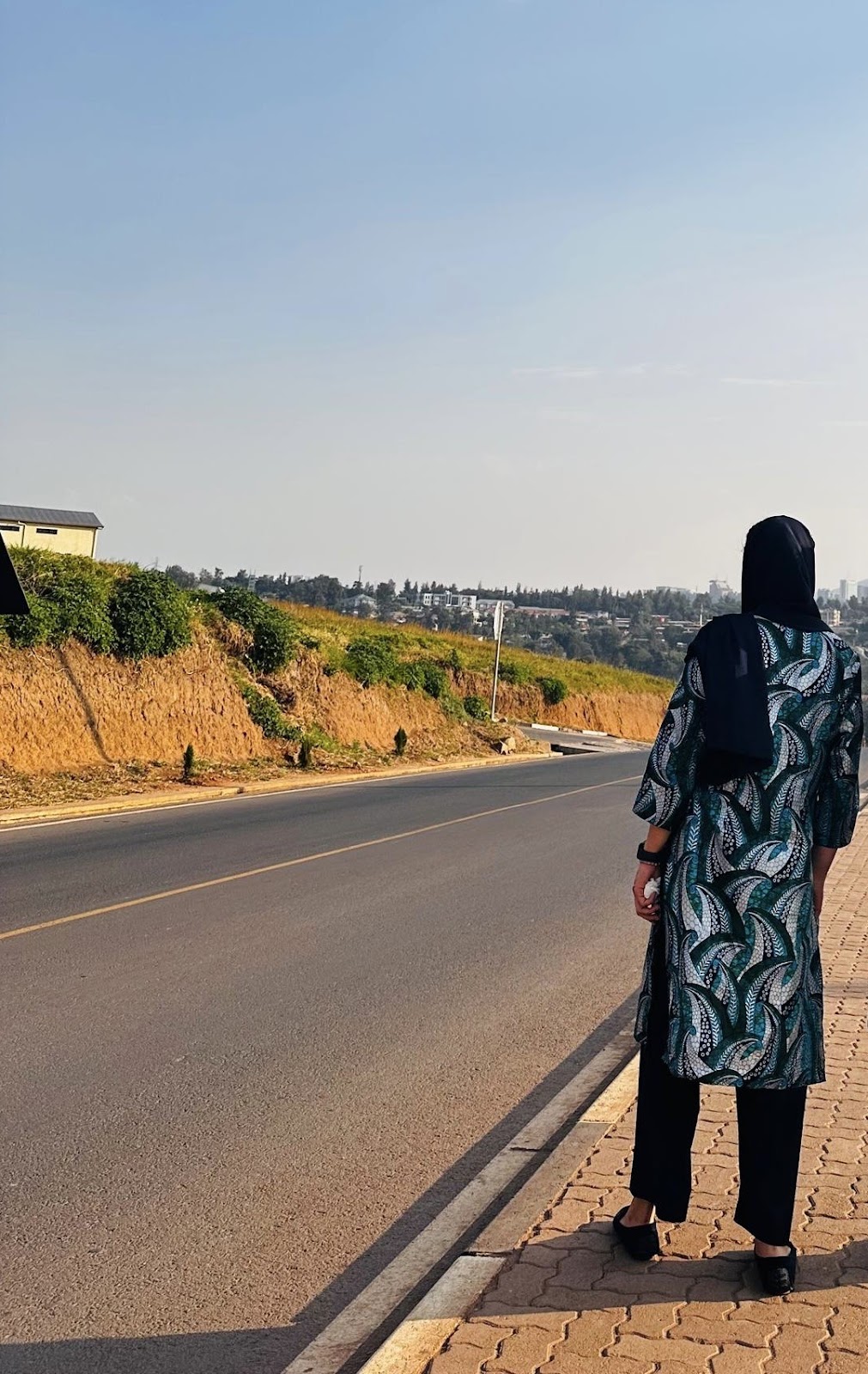
“I always dreamed of living abroad, meeting new people, learning different languages. My dream came true, in a different way than I expected.” Photo by Grace Manning.
By Grace Manning
*The names and identifying factors of all people have been changed for their safety and privacy.
‘His Support For Me Is Now His Greatest Enemy’
On August 15 2021, Fahima left home for the presidential palace in Kabul, where she served as health advisor to the first lady of Afghanistan. (Her name has been changed to protect her and her relatives from Taliban reprisals.) A midwife and psychologist, Fahima advocated for mental and maternal health across all provinces of Afghanistan.
Then the Taliban entered Kabul. Fahima spent four days living in a taxi, wearing a chador, with only a bottle of water.
When cell service returned, she called her father and asked him an impossible question: “I have been offered a seat on a plane leaving Afghanistan. Should I take it?”
He replied without hesitation: “Just go.”
“I still hear the echo of his voice,” Fahima said, “the extent of his helplessness, his selflessness, is always with me.”
She ran for hours, barefoot, to Kabul Airport, where she endured the heat and chaos of the crowds. And the humiliation.
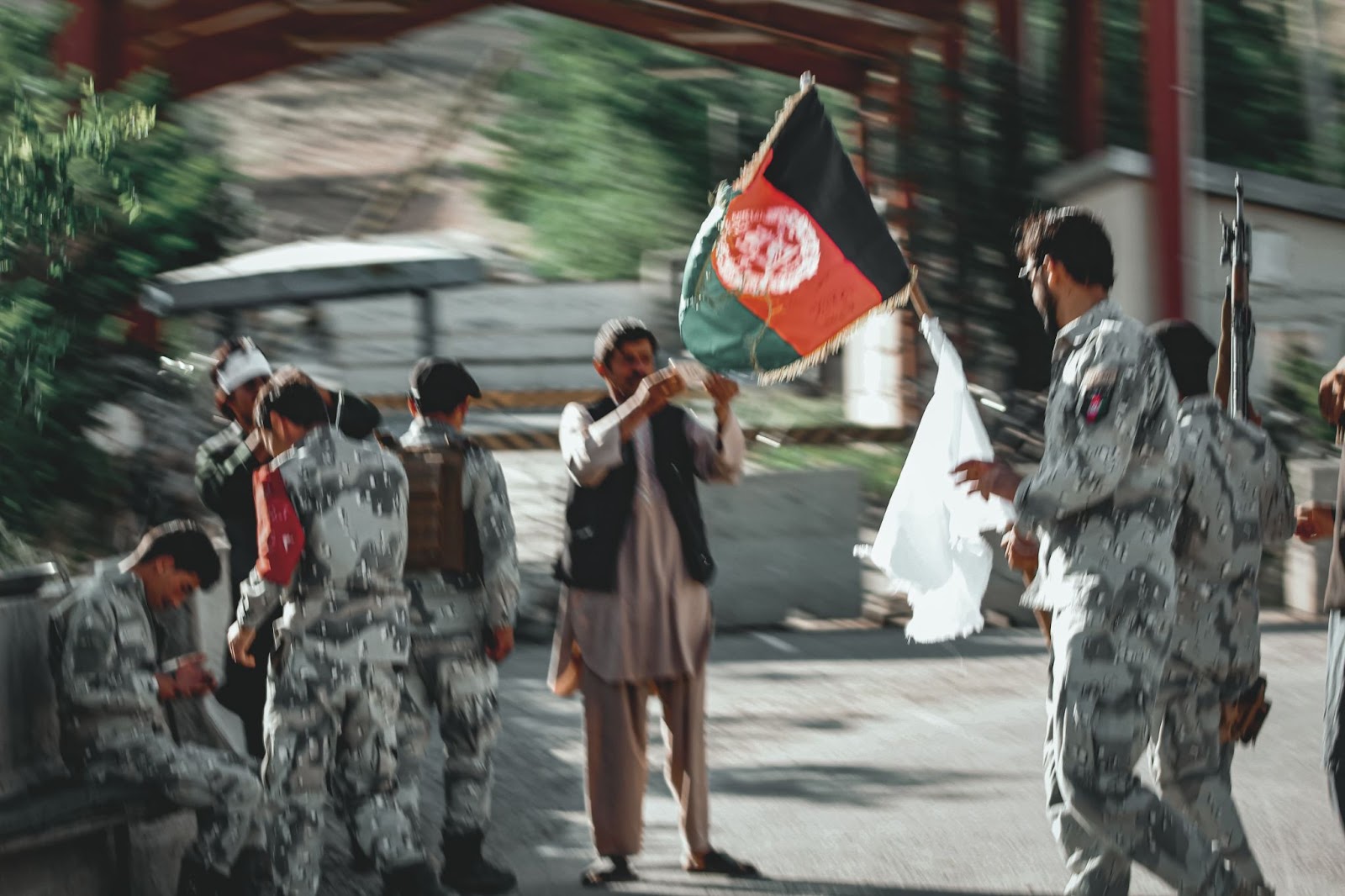
“My feelings are hard to explain – how sad, how low I felt that day, and even now.” Photo by Mohammad.
“The Taliban told me I was abandoning my religion,” she said, “they screamed that I was a prostitute. They spat in my face.”
Leaving Afghanistan, “I could only see the sky from the plane,” Fahima said, “that is a regret. I wish I had been able to say goodbye to my country.”
A refugee for the first time, Fahima waited in line for bread in a camp in Qatar. “I felt numb. I was in survival mode,” she said. But she never questioned her decision.
“Having already experienced the threat of the Taliban, I didn’t have a single moment to rethink,” Fahima said,“I couldn’t stay and allow both myself and my family to be killed.”
She had real reason to worry. Hers is a household name in Afghanistan. Fahima had dedicated her early career to midwifery, after witnessing the near-death of a neighbor in childbirth. Despite her parents’ fears, she disguised herself as a boy in order to accompany the young woman to the hospital. Women could not travel anywhere without a male escort, even if it was a matter of life or death.
“I didn’t see any other choice,” Fahima said, “it was very difficult for me to see a woman dying in front of me. I had to go.” She had just finished second grade and would not return to school for five years.
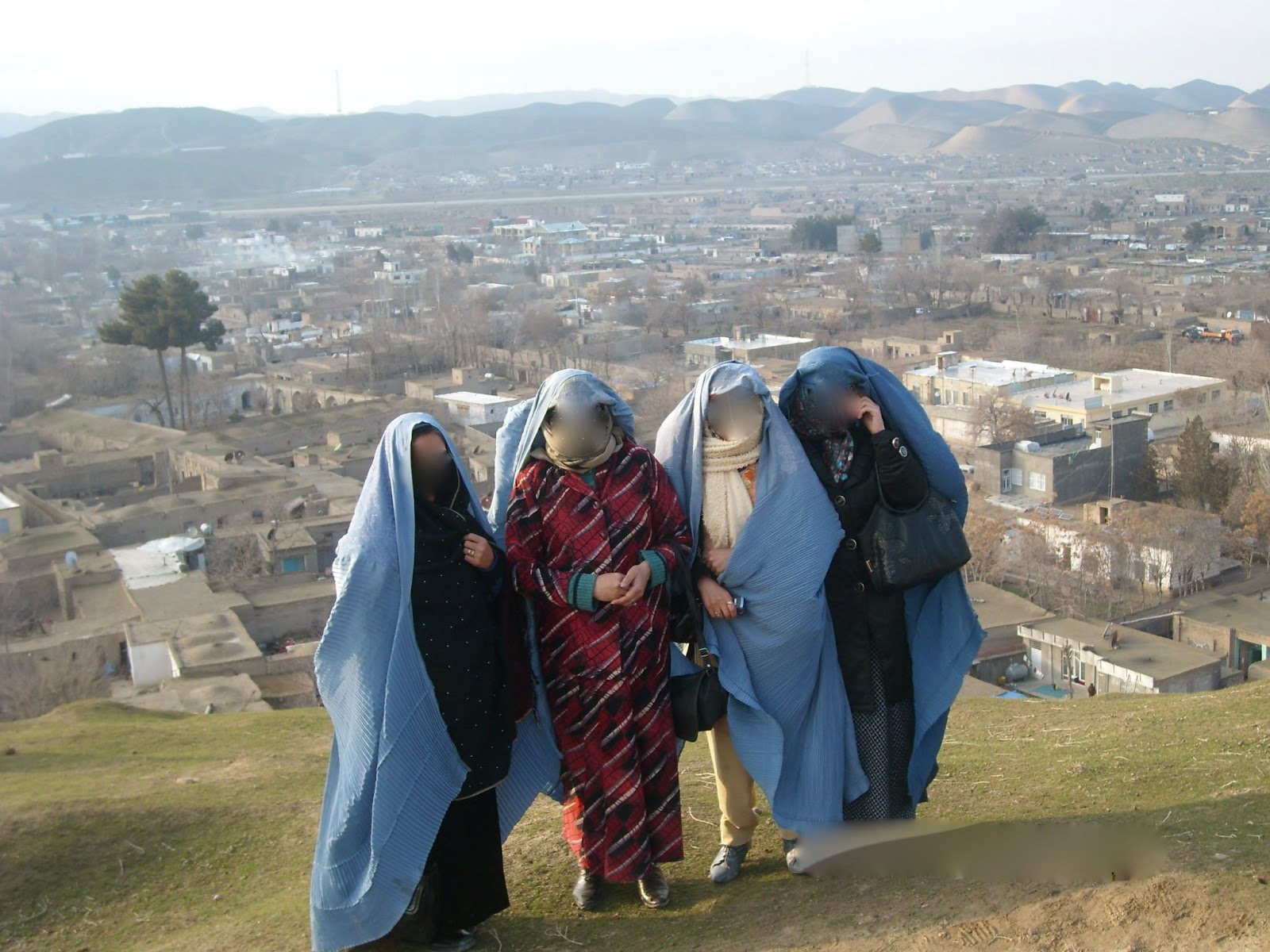
Fahima and fellow midwives smile from under burqas for a photo in Badghis province. Photo courtesy of Fahima.
Fear and danger governed Fahima’s childhood. Her childhood friend was killed by a landmine while they were playing. Her family spent days hiding in the basement of their home, surviving on dried fruit and nuts. They never knew what time it was or how many days had passed.
“Conflict stole my childhood,” Fahima said.
God Is No Else’s Business
Fahima’s father, a highly educated Muslim soldier in the Afghan army, married her mother, a devout Christian. He never forced her to convert to Islam. Fahima’s father, for the first of many times in his life, demonstrated his belief that, “love comes first and everything else comes second.”
Since Fahima’s mother was illiterate, Fahima’s father read his wife passages from the Bible. Every year, they traveled to Tajikistan so that her mother could attend Christmas Mass. As a family, they kept the secret of her mother’s religion.
Fahima’s father was a radical thinker in Afghan culture.
“He would say, ‘Religion is a commitment between you and God. It is no one else’s business. If you respect humanity, learn about every religion before you question it,’” Fahima said.
Several months ago, long after Fahima fled Afghanistan, the Taliban detained Fahima’s father after finding a Bible in their home. He was tortured, kept without food or water, and forced to divorce his wife. He was released, and Fatima’s family went into hiding. She has no idea where they are.
“To me, there is nothing in common between what I believe and what the Taliban do or say,” Fahima said, “I was raised to believe in humanity, regardless of whether someone prays in a mosque or a church.”
Three years ago, Fahima kissed her mother goodbye, thinking she would see her that evening.
“Today, I am still waiting for evening to come,” Fahima said.
‘An Unraveling’
Parween, a twenty-four-year-old Afghan woman, remembered her father’s words, “My only dream is to see my daughters become successful women.”
“People criticized my father for educating his daughters, but he didn’t care,” Parween said. Her father was a champion of women and girls – her greatest supporter.
Mohammad, Parween’s younger brother, rejected the idea that all Afghan men oppress women.
When Mohammad spoke, the weight of exhaustion hung in his voice. He had just arrived back from Afghanistan. He had returned to Kabul for the first time since 2021, to renew his Afghan passport— a privilege reserved for men.
He knew his sister would give anything to return to her home country.
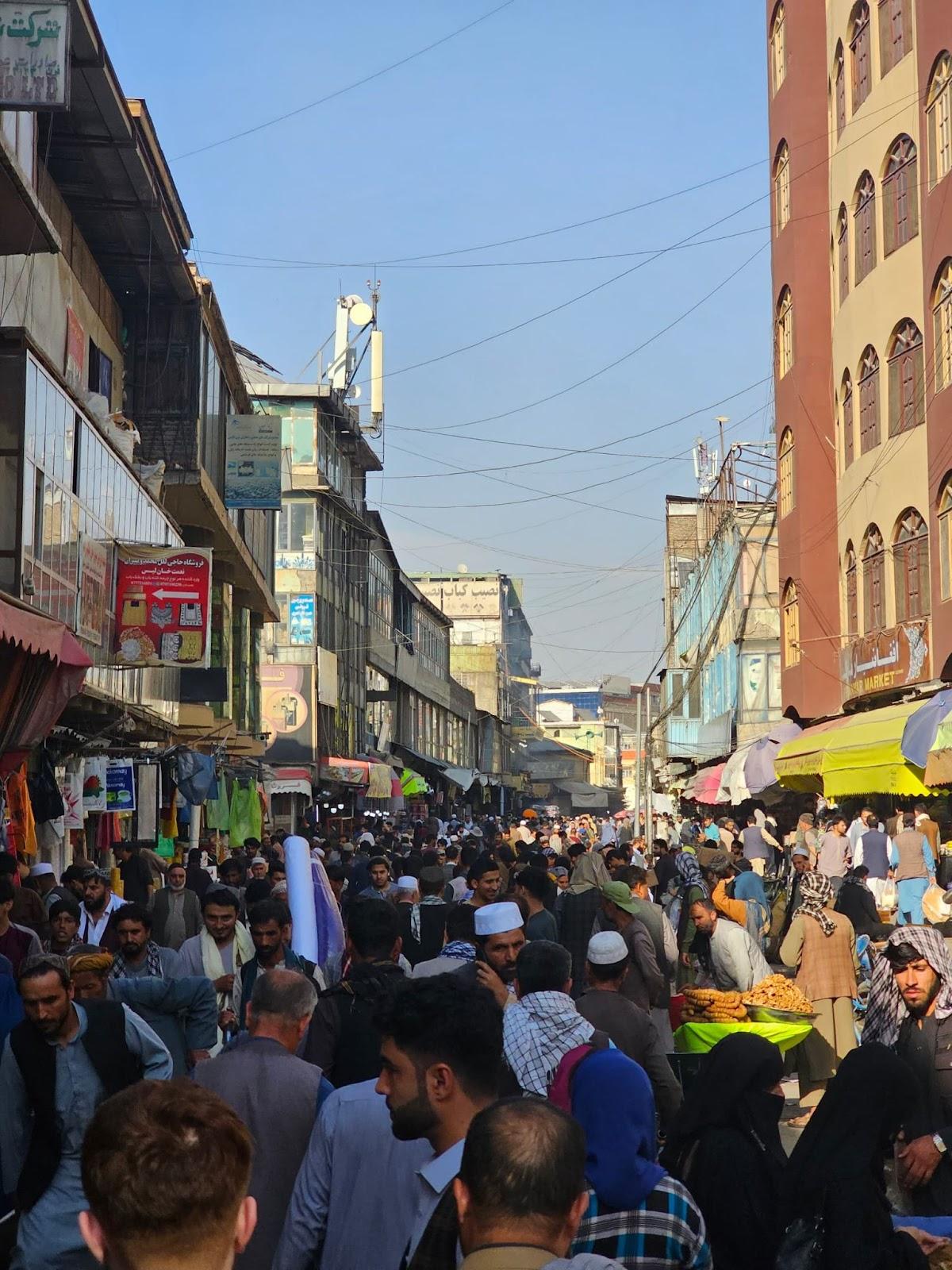
Taken by Mohammad in downtown Kabul, 2024. Women are noticeably absent.
“We’re both from the same country, born and raised there,” Parween said. “Why does it have to be different for women? We both have Afghan passports.”
Of his visit, Mohammad said, “It was a Kabul I didn’t want to see. An Afghanistan I didn’t want to see.” Utterly void of women, “it wasn’t as alive as before.”
Mohammad and Parween grew up in Wardak, a rural province of Afghanistan, during the dying days of the first Taliban regime. Now known as a haven for terrorism, the countryside of their childhood was one of rare beauty.
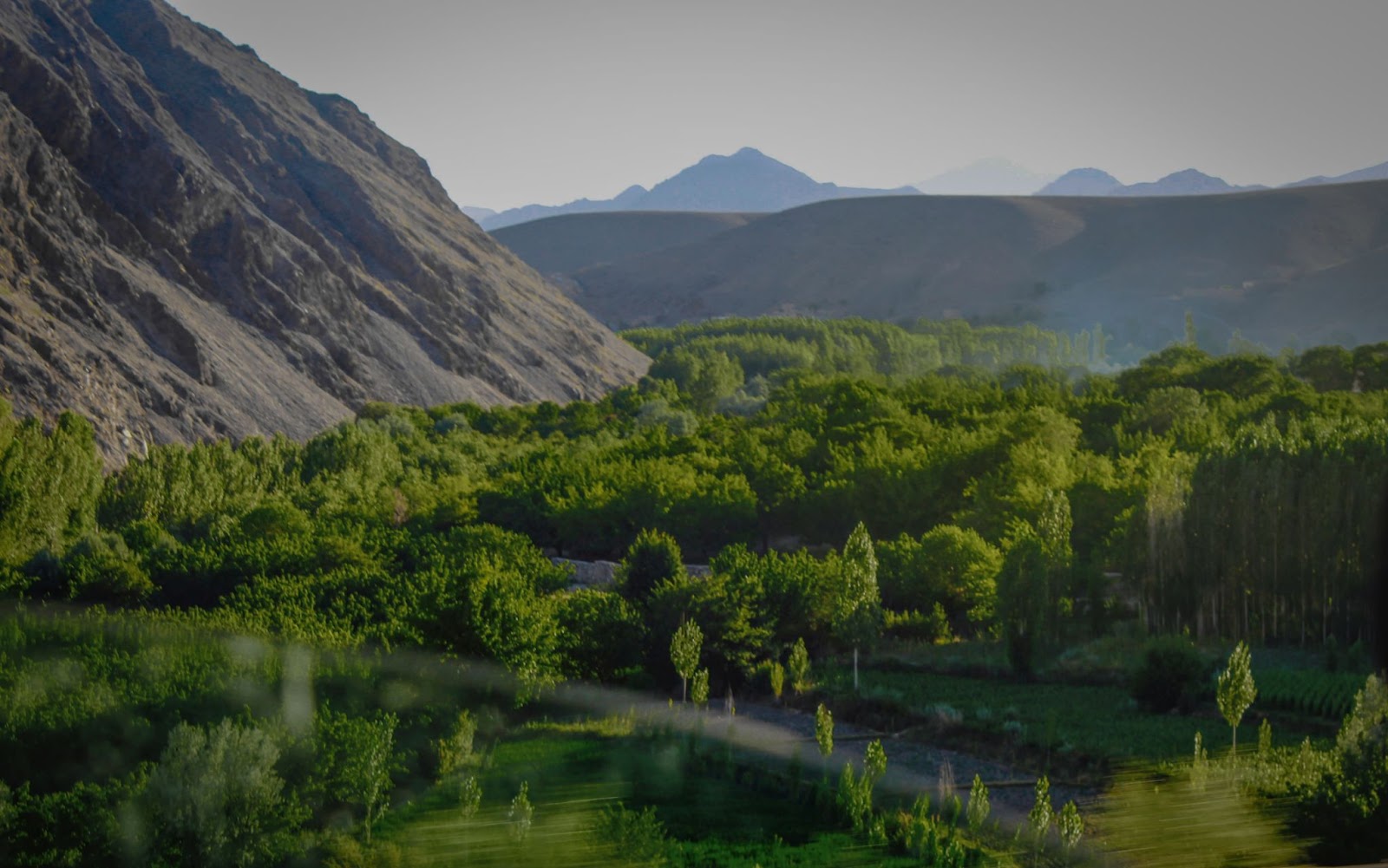
Wardak, Afghanistan. Photo by Mohammad.
“I loved growing up there,” Mohammad said, “the memories I have, those moments of laughter, are precious.” Living with his family of nine, in a mountainous part of Afghanistan known for its apples, Mohammad also remembered car bombs and mass shootings.
With few educational opportunities in Wardak, the family moved to Kabul. Mohammad started attending the American University.
“The moment you stepped inside, you forgot that you were in Afghanistan,” Mohammad said. There was freedom of speech on campus, in stark contrast with the rest of the country.
“On public transport, people would say university was a disgrace and it was brainwashing students into fighting against the Afghan government.”
Mohammad reveled in his learning until, in his words, “everything went sideways.”
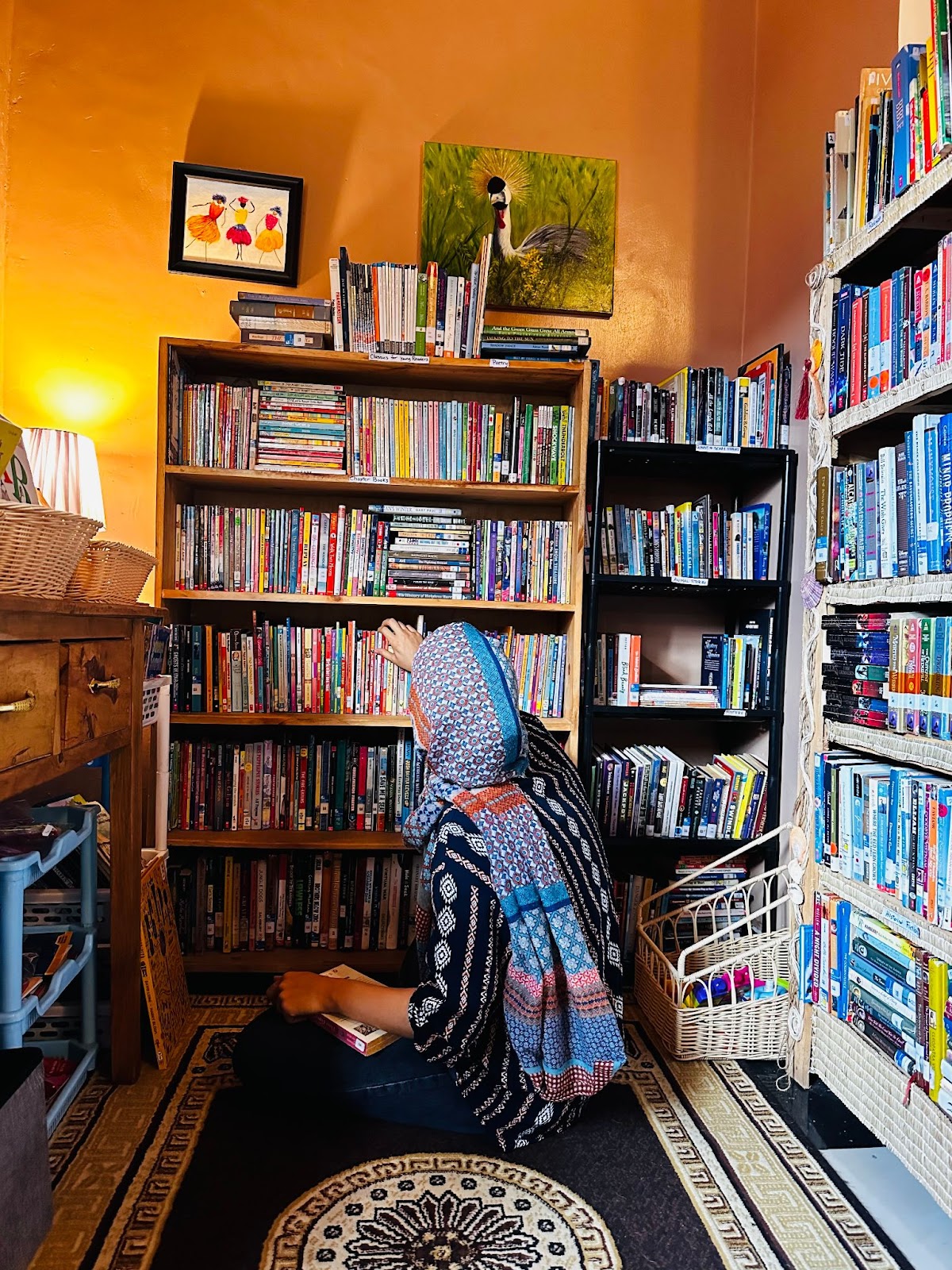
“I don’t tell my friends where I am now. I feel guilty for my freedom.” Photo by Grace Manning.
The morning the Taliban took Kabul, Mohammad went to school. His mother told him goodbye in the way Afghan mothers did, as though they might never see their child again.
He described his feelings in the days afterwards. “A shattering,” he said, “seeing how you are losing everything you’ve worked for.”
“I remember taking a photo of the sunrise on the first morning of the Taliban occupation, and I still have it with me. I think of that morning as the one where the young people in Afghanistan, especially the women, lost their hopes, their sense of their futures.”
Parween echoed her brother’s sense of disbelief.
Her hands were curled around a cup of tea, soft orange headscarf slipping down her neck. The cool night pushed in; the whine of mosquitos, the smell of woodsmoke and bougainvillea.
“I never thought it would happen,” she said, “my friends and I joked about it, saying, ‘if Talibs come, we will climb into trees to avoid them.’”
“Those first few days of the Taliban were chaos,” Parween said. After hearing that the city had fallen, she ran home from the University of Kabul. She was lucky that she lived close enough to run. Her friends were stuck in traffic for hours as Afghans scrambled to get home.
“You know when they announce that the war is beginning?” she said, “and everyone is running in the streets, and looking for their families? That is what it was like.”
Soon after, the city became quiet as Afghans locked their doors, and turned off their lights. Unease settled over the city.
Her mother told her to have hope. If the president of Afghanistan was still in Kabul, nothing could be as bad as it seemed. Parween sat on her balcony, and refreshed Facebook. It was her only news source – all Afghan channels had been infiltrated by the Taliban.
Then Parween saw a report.
“I cried,” she said, “when I saw that President Ghani had left. I thought, ‘now this is the end.’”
The Taliban appeared in the streets immediately.
“They were driving tanks,” she said, “It was so loud. They chanted day and night. They carried special guns, the ones the American soldiers left behind. We didn’t have guns like that before.”
Then they started taking down the flags. “We have the most beautiful flag,” she said.“They put up their own flag. They take the words of Islam and abuse them.”
“Afghans are now starving,” Parween said.
Their daughters do not attend secondary school or university. Women cannot speak in public, even to each other. They are forced to be inside, shut away from the world.
“We are lucky,” Parween said, “that committing suicide is forbidden in Islam. Otherwise, all of Afghanistan would be dead.”
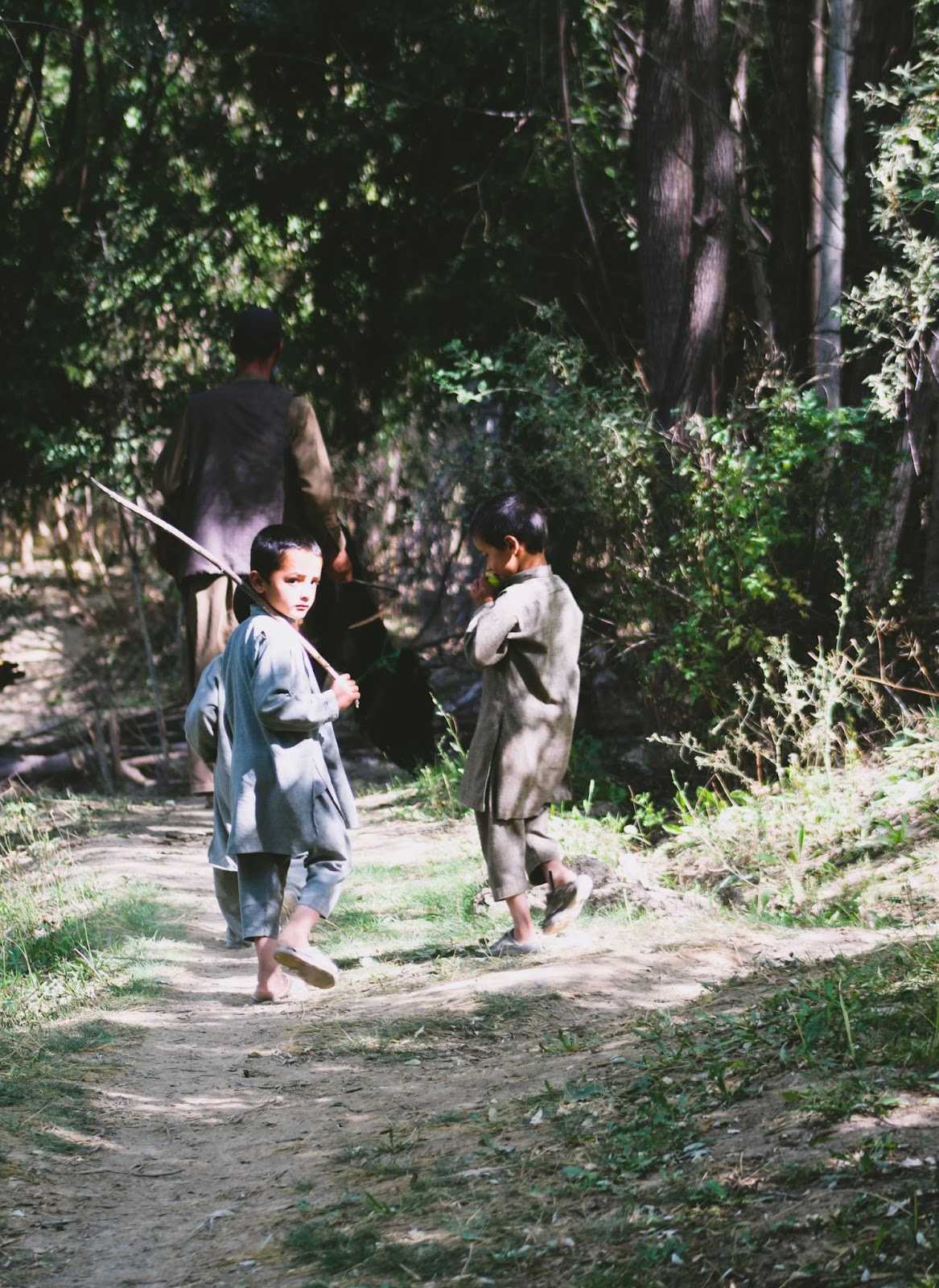
“I left the place I love the most. I didn’t want to see it that way. It made me feel sad.” Photo by Mohammad.
While reflecting on his recent trip, Mohammad said, “I saw pigeons fly wherever they wanted. They had the freedom to do anything a living creature would want to. To have more rights than women in Afghanistan – seeing that was very hard.”
“Leaving Afghanistan was like leaving a loved one behind, someone you may never return to.”
“There weren’t any good feelings leaving. Yes, I will have a better future. Yes, I will be able to continue my education. But leaving Afghanistan was the hardest thing I’ve done in my life,” Mohammad said.
Mohammad described his recent return to Kabul as a crushed dream. “I was hoping things might have changed while I was gone and I would be able to return home.”
One positive element of his new life in the United States is safety, Mohammad said.
“I leave my house in the morning and my mother is still sleeping. It is the first time I ever saw her sleep in the morning without needing to say goodbye.”
“It is a different feeling and a good one.”
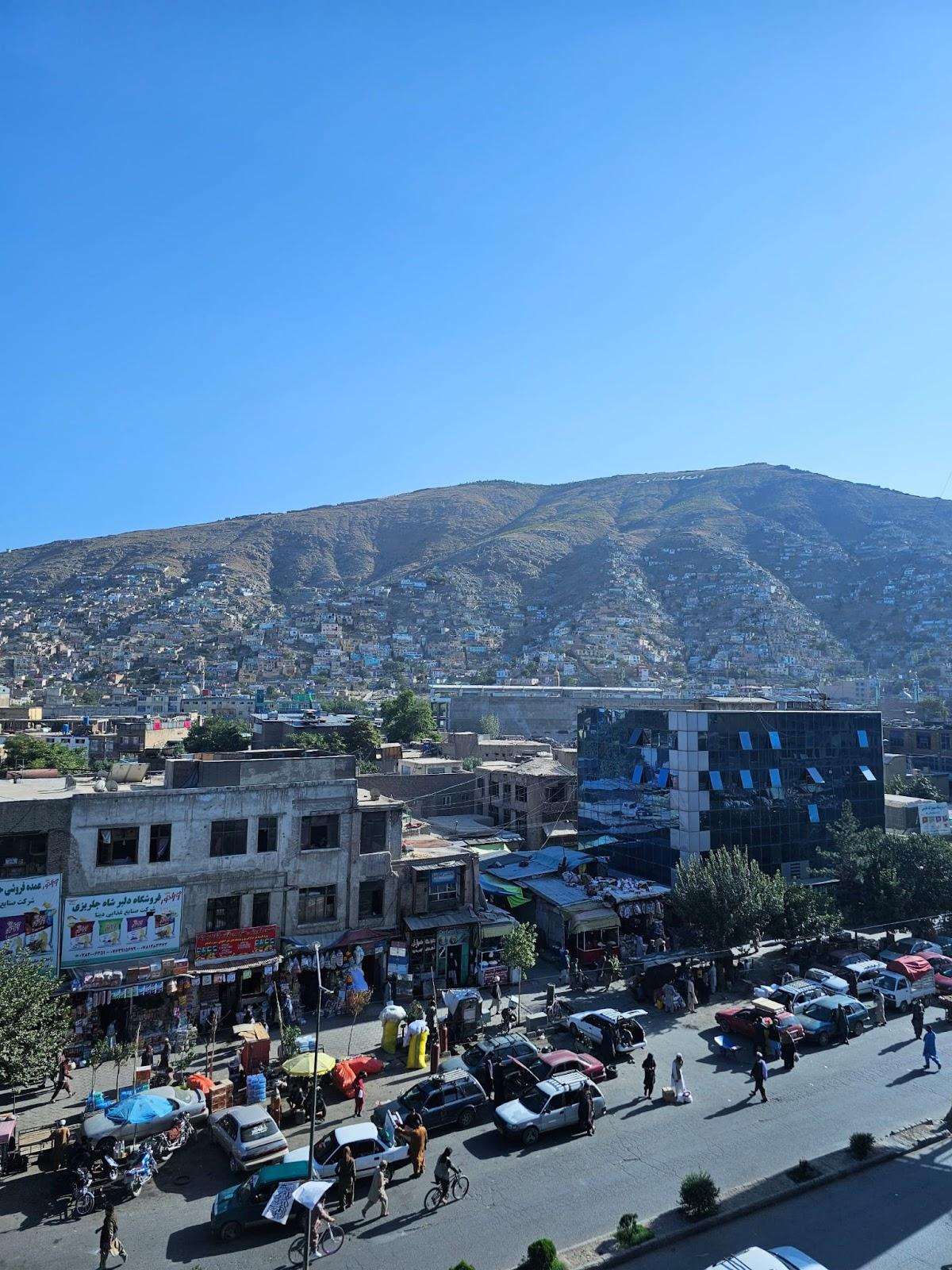
Aerial view of Kabul. “I feel like I left my city in the wrong hands.” Photo by Mohammad.
‘I Have Hope’
Parween’s first time on an airplane was when she left everything she had ever known for the clambering green of Rwanda in 2022. She crossed the Pakistan land border with the excuse of a medical emergency, and fled to a place she had been hearing about her entire life – the School of Leadership Afghanistan. It remains the only boarding school for Afghan girls in the world.
Parween’s father accompanied her to Islamabad, before, extraordinarily, they parted ways. “He told me to experience everything,” Parween said, “He always wanted me to live life and make him proud.”
Fahima first met Shabana Basij-Rasikh, co-founder of the School of Leadership Afghanistan, while working for the former First Lady of Afghanistan in 2021.
“She would come into the office and talk about the rights of Afghan girls,” Fahima said, “everyone knew her.”
Months later, Basij-Rasikh would make a phone call to Fahima, which she answered from an abandoned taxi, offering her a seat on a plane full of young Afghan girls. In return, Fahima devoted her career to SOLA’s mission.
Fahima and Parween both spoke of an, “unfinished journey.” One that would end with a family reunion, a return to a ravaged homeland, a sense of peace.
“These things are always happening in life,” Parween said, “One day we have a good day, another we have a bad day. I have hope.”
For now, their days are dedicated to the Afghan girls who made it out of Afghanistan, and who are fiercely pursuing a stolen education.
Parween teaches Math, Fahima is the school psychologist. They are met every day with the aftermath of trauma, forced separation, and homesickness, manifested in children.
Parween dreams of the day she will see her family again.
She pictures a reunion, in an airport in the United States, kissing her mother’s hands.